The 40 smartest people of all time
40. Richard "Rick" Rosner

39. Marilyn vos Savant
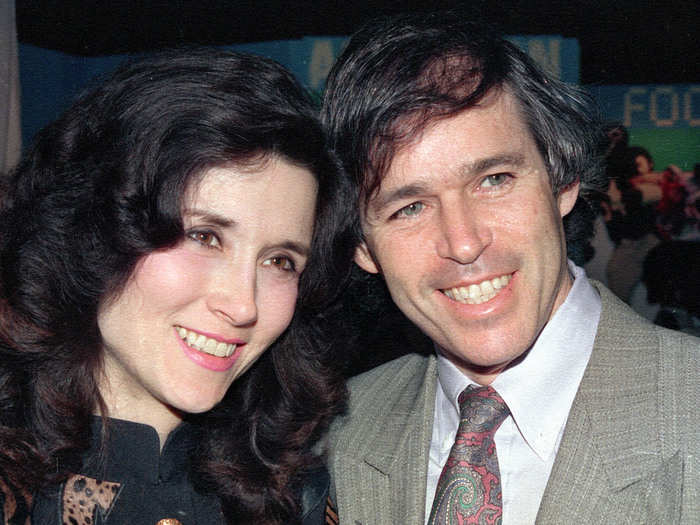
Born in 1946, Vos Savant has earned IQ scores ranging from 157 to 228.
Vos Savant dropped out of Washington University after two years to dabble in stocks and real estate, according to Jezebel. She later became a writer and married Robert Jarvik, the inventor of the Jarvik artificial heart.
She achieved fame when her extrapolated score of 228 (based on a childhood test) was listed in the Guinness Book of World Records in 1985.
Since 1986, she has written an "Ask Marilyn" column in Parade magazine, where she was famous for solving the Monty Hall problem.
38. Christopher Langan
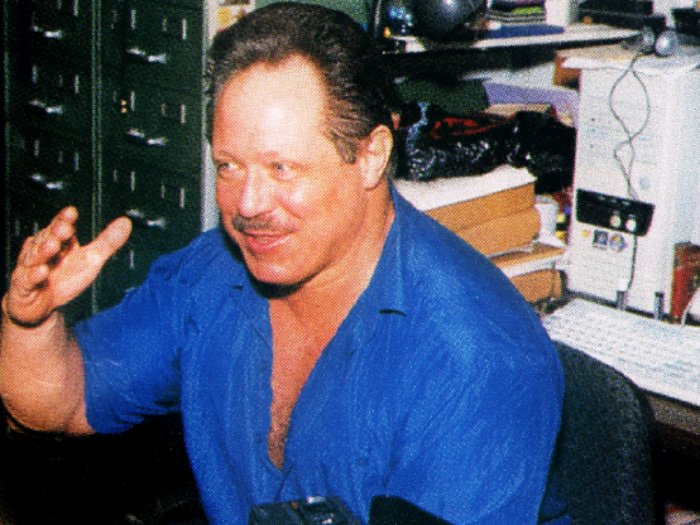
With an IQ reported between 174 and 210, Christopher Langan was dubbed the smartest man in America by Esquire Magazine.
Langan is an autodidact, meaning he is largely self-taught. He has spent much of his adult life developing a Cognitive-Theoretic Model of the Universe, a kind of theory of everything which he calls the CTMU.
At 6'1" and 275 pounds, Langan is an avid weightlifter and recovering agoraphobic who pays the bills doing temp work as a bartender, night-club bouncer, and personal trainer.
37. Nathan Leopold
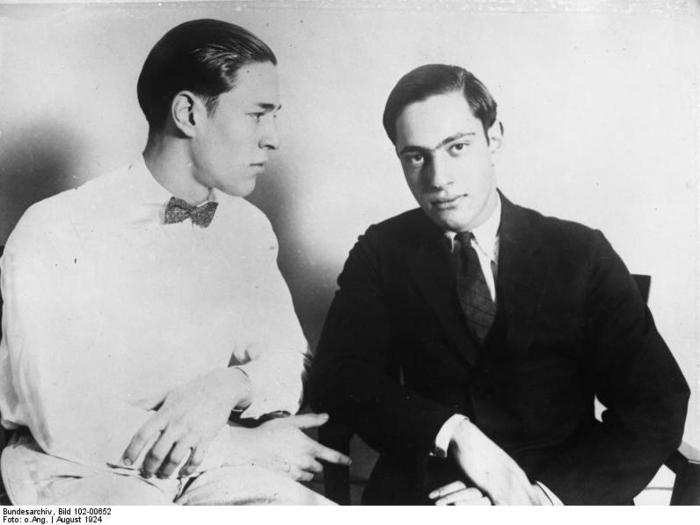
Born in Chicago in 1904, Nathan Leopold was a child prodigy with an IQ of 210 who spoke his first words at 4 months old.
He was also a murderer who, along with his friend Richard Loeb, killed a 14-year-old boy while trying to commit "the perfect crime" in 1924. The crime inspired the Alfred Hitchcock film "Rope."
Brilliant yet socially inept, Leopold latched on to Loeb, who was good looking and popular, according to Biography.com. Leopold was convicted of murder and spent 33 years in prison. He died in Puerto Rico in 1971 at the age of 67.
36. Marnen Laibow-Koser

After acing a childhood test, Laibow-Koser was given a projected IQ of 268.
He is now a 39-year-old composer and web application developer living in Somerville, Massachusetts. He's a graduate student at the New England Conservatory, according to his Twitter.
35. Ainan Cawley

Ainan Cawley is a 14-year-old British prodigy with IQ scores ranging between 263-349, according to different measures. At age 9, Cawley could recite Pi to 518 decimal places, the Telegraph reported.
He lives in Singapore where he gave a science lecture about acid and alkaloids at the age of 6, passed the Chemistry O level exam (meant for 16-year-olds) at 7, and enrolled in the Singapore Polytechnic at age 8.
34. Adragon De Mello

A college graduate at the age of 11, De Mello has a projected IQ of 400.
He largely has his father to thank — or maybe, to blame — for his early success and ambition. Consumed by the idea that his son would win a Nobel Prize by age 16, Agustin De Mello put obsessive pressure on Adragon to succeed, CBS reported in 2000.
"A lot of the dreams that people heard about, of winning a Nobel Prize and going to doctorate school, is mostly my father," Adragon told CBS. "It wasn't something I cared about doing."
As of 2003, Adragon was working for the Home Depot after training to be an estimator for a commercial painting company.
33. Michael Kearney

Born in Hawaii in 1982, Kearney received a bachelor’s degree from the University of South Alabama at age 10. His IQ scores range from 200 to 325 by different measures.
He was diagnosed with Attention Deficit Hyperactivity Disorder (ADHD) early on and always dreamed of becoming a game show host. By age 22, Kearney had earned four bachelor's degrees (in anthropology, computer science, geology, and chemistry) and a doctorate in chemistry, ABC reported.
32. Nadia Camukova

Nadia Camukova, who has an IQ of 200, was born in Moscow in 1976. The Brain Research Institute in Moscow reported later on that she had the highest IQ in the world.
Camukova can speak seven languages (Russian, English, French, Turkish, German, Arabic, and Persian) and eight Turkish dialects. She's a professor at Bahçesehir University in Turkey.
31. Michael Grost
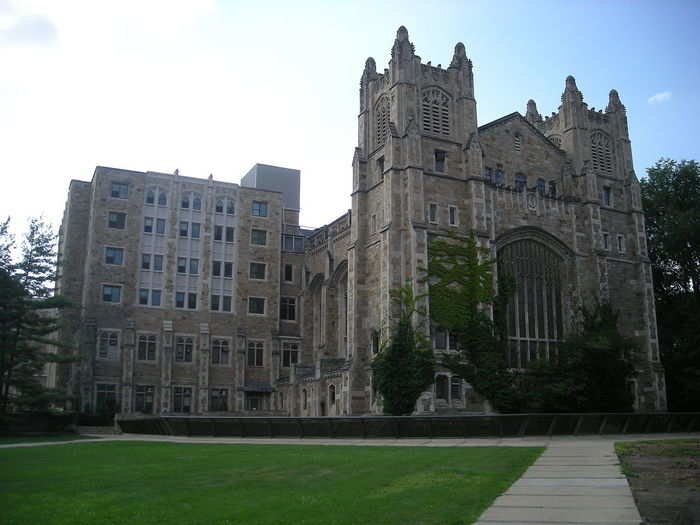
Michael Grost, who has an IQ of 200, was only 10 years old when he started studying at Michigan State University in 1964.
He later attended Yale University and the University of Michigan, where he earned a doctorate in mathematics at age 23. As of 2005, Grost was a system architect at a computer company in Detroit, the MSU State News reported.
Grost's interests include painting and evolutionary biology.
30. Sho Yano

Sho Yano enrolled in Loyola University at age 9, graduating summa cum laude three years later, the Chicago Tribune reported. He has an IQ of 200.
Yano entered University of Chicago's prestigious Pritzker School of Medicine at age 12 and at age 21 became the youngest student in the school's history to receive an M.D. He also has a Ph.D. in molecular genetics and cell biology, according to the Los Angeles Times.
29. Dylan Jones

Dylan Jones, who has an IQ of 200, graduated at 16 from the Colorado School of Mines where he obtained a degree in math and computer science and a minor in bioengineering and life sciences, according to Mines Magazine.
A year later, Jones entered the University of Colorado Denver School of Medicine, where he's studying to be a neurosurgeon.
Jones has studied Latin, French, Spanish, and German. He wants to learn Russian next because "Cyrillic is a different set of characters. I want that extra challenge," he told the Colorado School of Mines Magazine.
28. Edith Stern
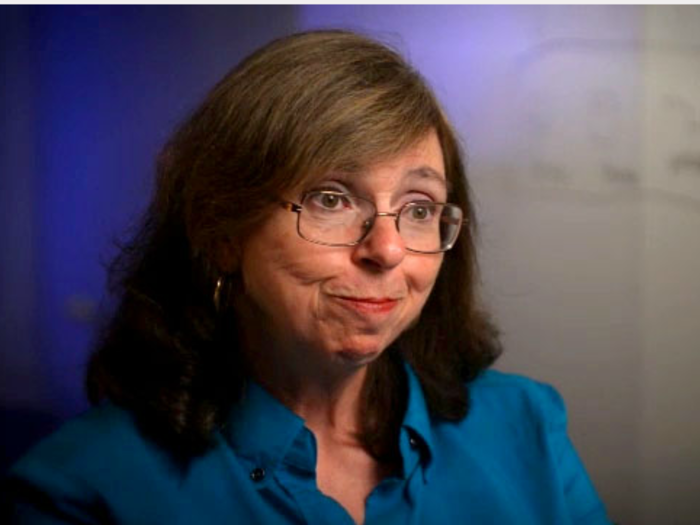
The day after Edith Stern was born, her father announced in a press conference that he intended to mold his infant daughter into "the perfect human being," the Milwaukee Sentinal reported.
By age 5, Edith's father had her read the entire Encyclopedia Britannica. She was in college by age 12, and by 15 she was teaching college-level math classes, according to the Sentinal. She has an IQ of 203.
She has worked at IBM since the 1970s and has been recognized for her many contributions in applied mathematics.
27. Kim Ung-Yong

Kim Ung-Yong started university courses at the age of 3 and spoke four languages by age 4. At 8, NASA invited him to study in the US. His IQ scores range from 200 to 210 by different measures.
At 16, Kim left NASA to go back to South Korea and earn a doctorate in civil engineering, Business Insider reported.
He now works in a business planning department at Chungbuk Development Corporation.
"People expected me to become a high-ranking official in the government or a big company," Kim told the Korea Herald in 2010. "But I don’t think just because I chose not to become the expected it gives anyone a right to call anyone’s life a failure."
26. Francis Galton
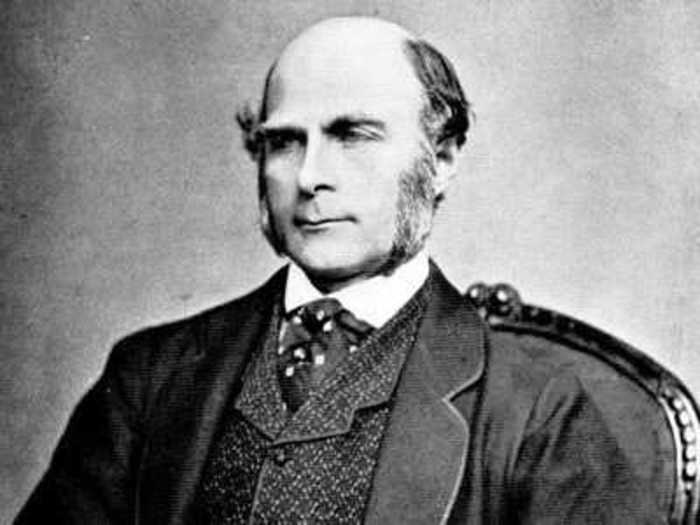
Sir Francis Galton was an English polymath best known for his research in eugenics and human intelligence. He studied math at Cambridge and had a keen interest in psychology throughout his life.
According to Thims' estimates, Galton had an IQ of 200.
He's credited with developing the modern weather map and introducing the use of fingerprints in police work. He was a cousin of Charles Darwin and became interested in eugenics and evolution after the "Origin of Species" was published in 1859.
25. Marie Curie
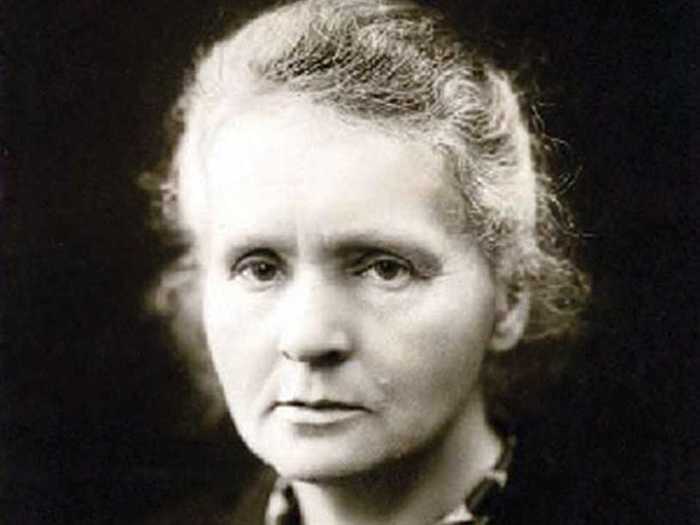
Marie Curie was a Polish-born physicist and chemist. She is perhaps best known for her research into radioactivity (a term she coined), which was instrumental in the development of x-rays in surgery. Her IQ scores range from 180-200 by different measures.
Curie was the first woman to win the Nobel Prize, the first person to win it twice — in physics and then in chemistry — and the first woman to teach at the Sorbonne.
24. Thomas Wolsey
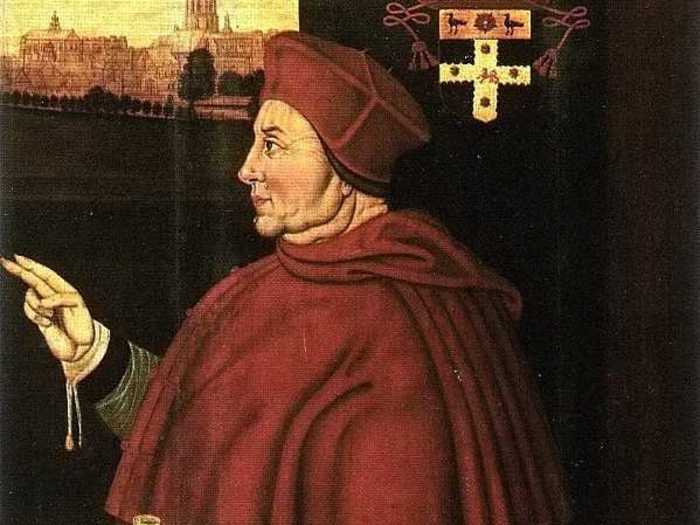
Thomas Wolsey was a 16th century English cardinal and statesman who is estimated by Thims to have had an IQ of 200.
He was Henry VIII's lord chancellor and organized the first meeting between Henry and Francis I, King of France. By 1514 he controlled virtually all matters of state and was extremely powerful within the Church.
Shortly after he failed to arrange a papal annulment of Henry's marriage to Catherine of Aragon, Wolsey was arrested for treason. He died on his way to trial in 1530.
23. Hugo Grotius
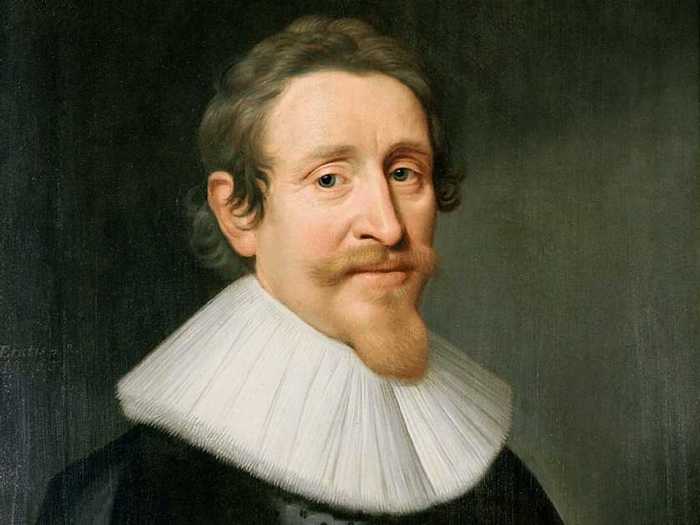
Hugo Grotius was a 17th century Dutch jurist and scholar best known for his contributions to international law. Thims estimates he had an IQ of 200.
He was appointed attorney general of the provinces of Holland, Zeeland, and West Friesland in 1607 but was exiled to Paris in 1621 after being accused of treason for taking part in a Dutch political struggle.
These violent power struggles in Holland and throughout Europe inspired much of his legal masterpiece "De Jure Belli ac Pacis" ("On the Law of War and Peace").
22. Hypatia
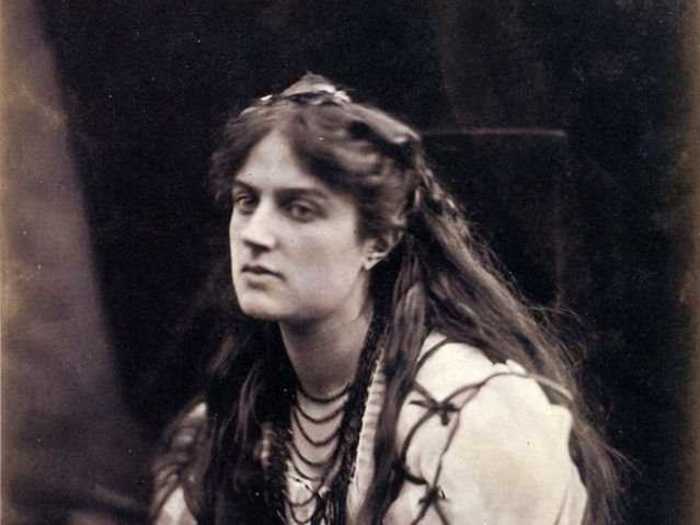
Hypatia of Alexandria was a 4th century Greek philosopher and the leading mathematician and astronomer of her time. Her estimated IQ scores range from 170 to 210 by different measures.
Hypatia was frequently targeted and criticized for her Pagan values and for teaching the decidedly non-Christian philosophy of Neoplatonism. She was killed in the streets of Alexandria by a mob of Christian zealots in the year 415.
21. Terence Tao
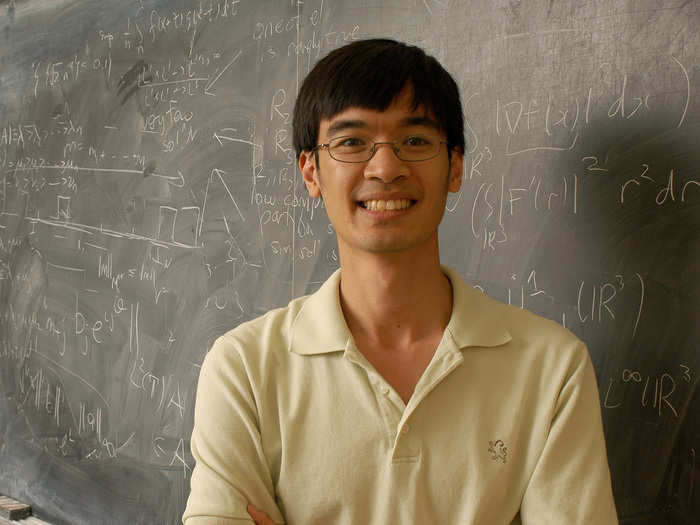
Nicknamed "the Mozart of Math" by his colleagues, Tao was a child prodigy who now teaches mathematics at UCLA. His IQ scores range from 211 to 230 by different measures.
He joined the faculty shortly after earning his doctorate fom Princeton at 21 and was a tenured professor by the age of 24.
He has become well known for his contributions to number theory and harmonic analysis. He was awarded $3 million earlier this year after he and four others won the new Breakthrough Prize in Mathematics, the Los Angeles Times reported.
20. John Stuart Mill
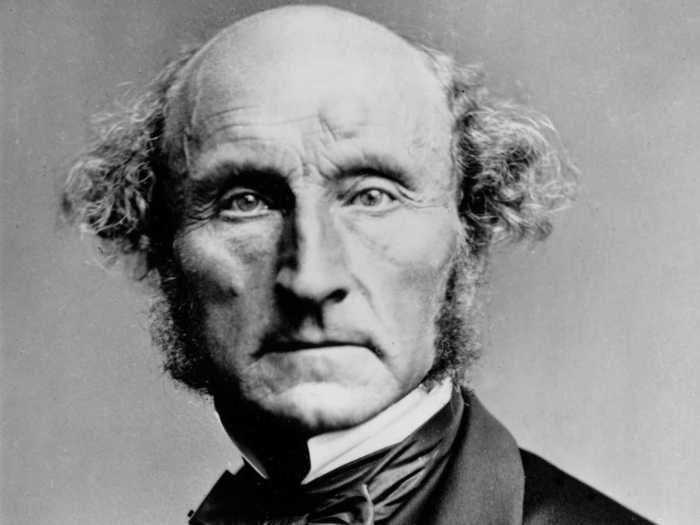
John Stuart Mill was a 19th century political philosopher and member of the British parliament. As a student of philosopher Jeremy Bentham, Mill championed utilitarianism and criticized unlimited state control. His estimated IQ scores range from 180-200 by different measures.
His 1859 essay "On Liberty," in which he argues that liberty is a fundamental human right, sparked controversy in its unequivocal endorsement of individuality and freedom of speech.
19. Christopher Hirata
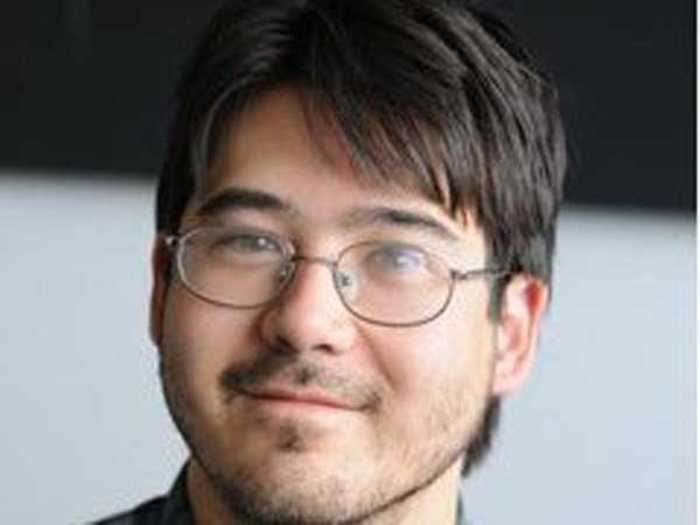
Child prodigy-turned-astrophysicist Christopher Hirata, who has an IQ of 225, gained fame at age 13 by becoming the youngest winner at the 1996 International Physics Olympiad. One year later, he entered the California Institute of Technology.
By age 16 he was working with NASA on a project investigating the colonization of Mars, and at 22 he received his PhD in physics from Princeton.
He is a professor of physics and astronomy at Ohio State University.
18. Emanuel Swedenborg
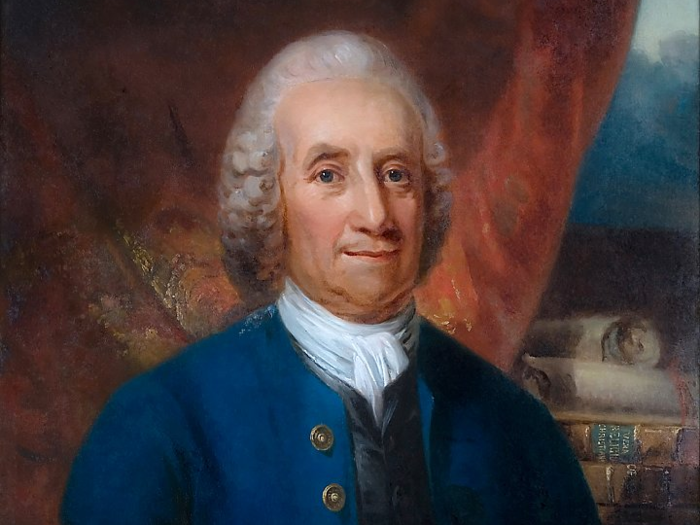
Emanuel Swedenborg was an 18th century scientist and theologian. His estimated IQ scores range from 165 to 210 by different measures.
Renowned most of his life for his contributions to the natural sciences, Swedenborg had a spiritual awakening in his 50s and published what is now his most famous work — a description of the afterlife called "Heaven and Hell."
Highly regarded after his death by philosophers and mystics, Swedenborg claimed he could visit heaven and hell at will and that his ideas about spirituality, God, and Christ came to him in dreams and visions.
17. Ettore Majorana
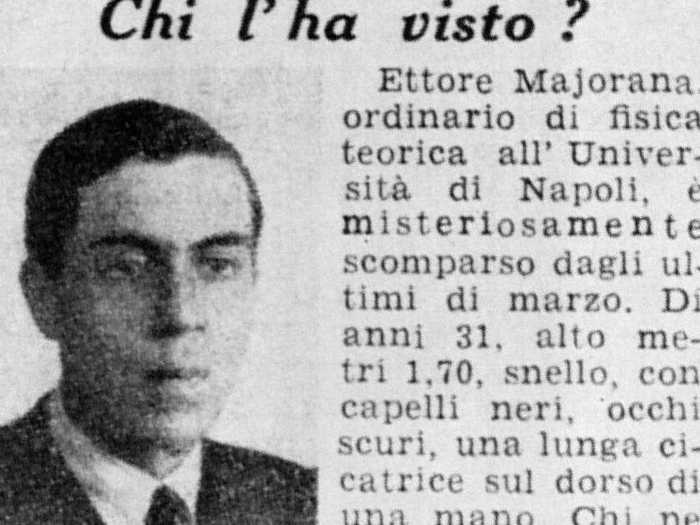
Ettore Majorana was an Italian theoretical physicist who studied neutrino masses, electrically neutral subatomic particles that are created in nuclear reactions. His IQ scores range from 183 to 200 by different measures.
He became a full professor of theoretical physics at the University of Naples one year before his mysterious disappearance during a boat trip from Palermo to Naples. His body was never found.
The Majorana equation and Majorana fermions are named after him, and in 2006, the Majorana Prize in theoretical physics was established in his memory.
16. Voltaire
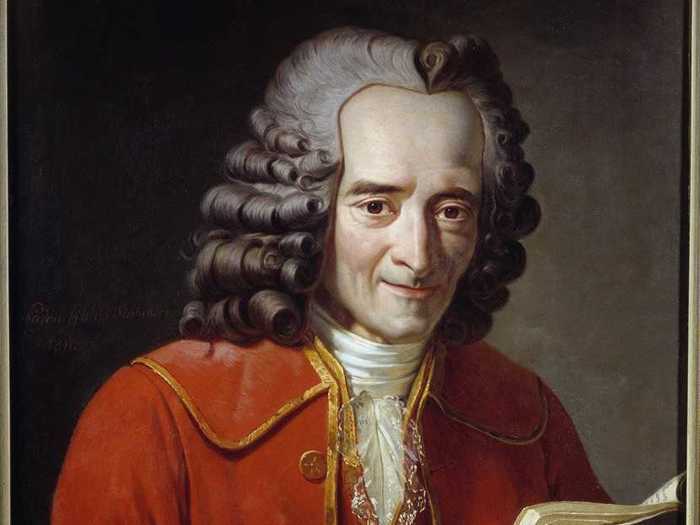
Francois Marie Arouet, better known by his pen name Voltaire, was born in Paris in 1694. His estimated IQ scores range from 190 to 200 by different measures.
He was one of France's greatest writers and philosophers, known for his satirical genius and biting criticism of his country's noblemen.
Throughout his life, Voltaire vigorously defended the distinction between natural science and philosophy. Many of his critical writings were directed against established philosophers such as Leibniz, Malebranche, and Descartes, according to the Stanford Encyclopedia of Philosophy.
15. William Shakespeare
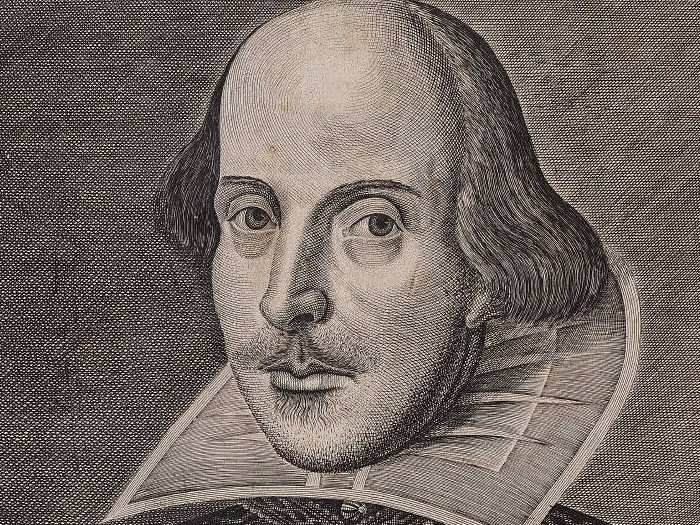
Often referred to as England's national poet and the "Bard of Avon," William Shakespeare had an estimated IQ of 210 and is widely regarded as the greatest English-speaking writer and dramatist to have ever lived.
Born in 1564 in Stratford-Upon-Avon, England, Shakespeare earned a living as an actor and a playwright in London. By 1597, 15 of his plays had been published, including "Richard II," "Henry VI," and "Much Ado About Nothing."
14. Nikola Tesla
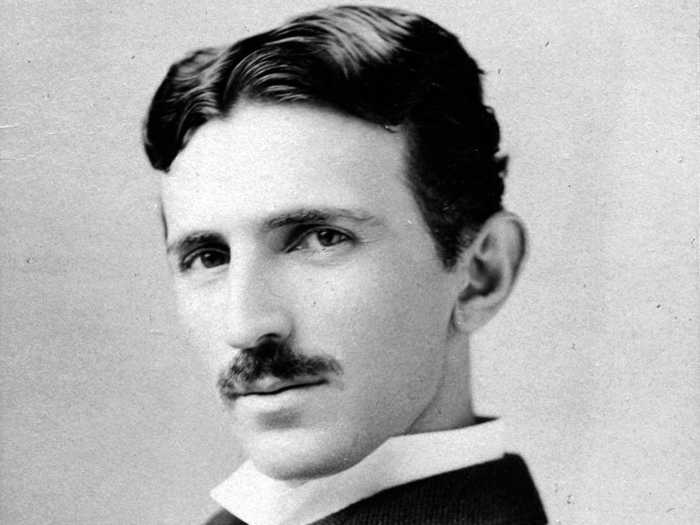
Born during a lightning storm in 1856, Nikola Tesla went on to invent the Tesla coil and alternating current machinery. His estimated IQ scores range from 160 to 310 by different measures. He had an intense rivalry with Thomas Edison throughout his life, and many of his projects were funded by JPMorgan, who would later become his business partner.
In 1900, Morgan invested $150,000 in Tesla's Wardenclyffe Tower — a transatlantic wireless communication system that Tesla never completed. The Serbian physicist died penniless in a New York City hotel room in 1943.
13. Leonhard Euler
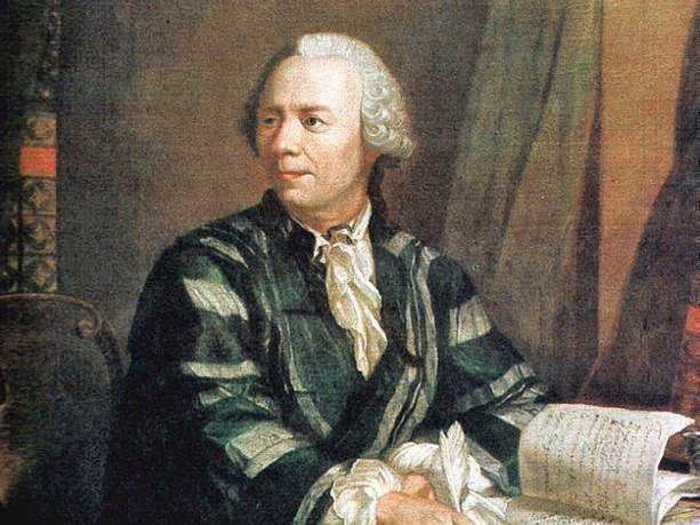
Leonhard Euler was a Swiss mathematician and physicist. Born in 1707 and educated in Basel, Euler spent most of his career in St. Petersburg and Berlin. His estimated IQ scores range from 180 to 200 by different measures.
Euler was one of the founders of pure mathematics and further developed the study of integral calculus. He authored "Introductio in Analysin Infinitorum," and his complete works fill about 90 volumes. He had a legendary memory and could recite the entire "Aeneid" word-for-word.
12. Galileo Galilei
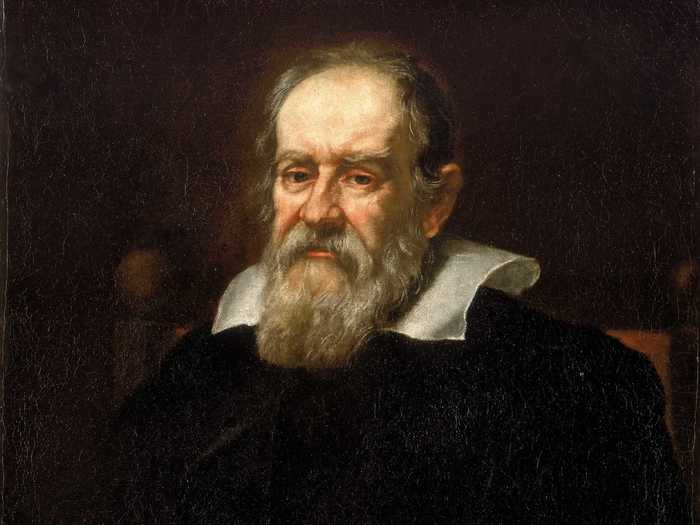
Galileo was an Italian natural philosopher, astronomer, and mathematician born in 1564 who developed such scientific concepts as circular inertia and the law of falling bodies. His estimated IQ scores range from 180 to 200 by different measures.
His discoveries with the Telescope undermined Aristotelian cosmology, particularly his findings that Venus goes through phases just as the Moon does and that Jupiter has four moons orbiting around it.
Towards the end of his life, the Church denounced him as a heretic due to his advocacy of Copernicus' heliocentric model of the universe.
11. Carl Gauss
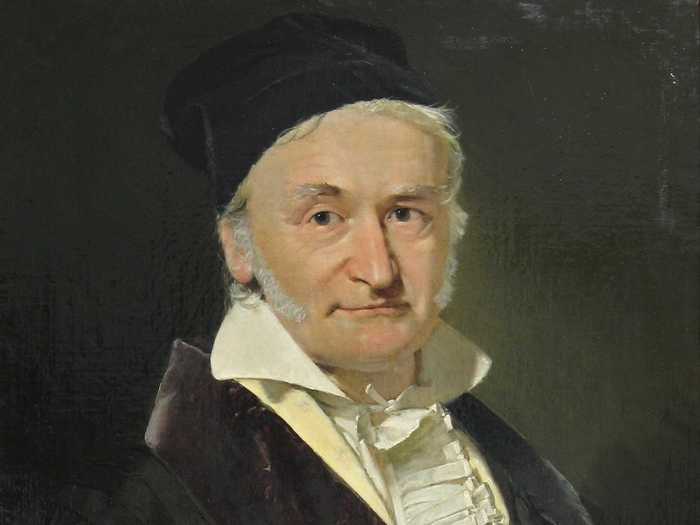
Considered to be the greatest German mathematician of the 19th century, Carl Gauss was a child prodigy who went on to contribute extensively to the fields of number theory, algebra, statistics, and analysis. His estimated IQ scores range from 250 to 300 by different measures.
His writings were particularly influential in the study of electromagnetism. He refused to publish anything until it was absolutely perfect.
10. Thomas Young
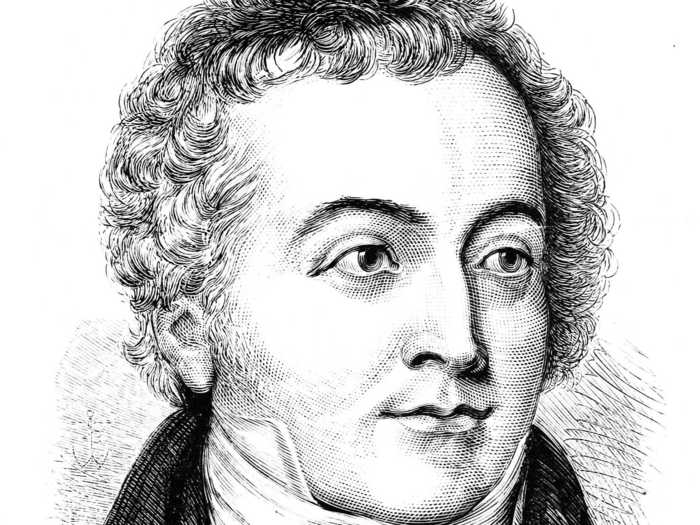
Thomas Young was an English physician and physicist whose contributions to the fields of vision, light, physiology, and language led to many important discoveries in optics and human anatomy. His estimated IQ scores range from 185 to 200 by different measures.
He was also an Egyptologist who helped decipher the Rosetta Stone.
One of his most important discoveries was that the lens of the human eye changes shape to focus on objects at different distances, which ultimately led him to determine the cause of astigmatism. He was also the first to postulate how the eye perceives colors.
9. William Sidis
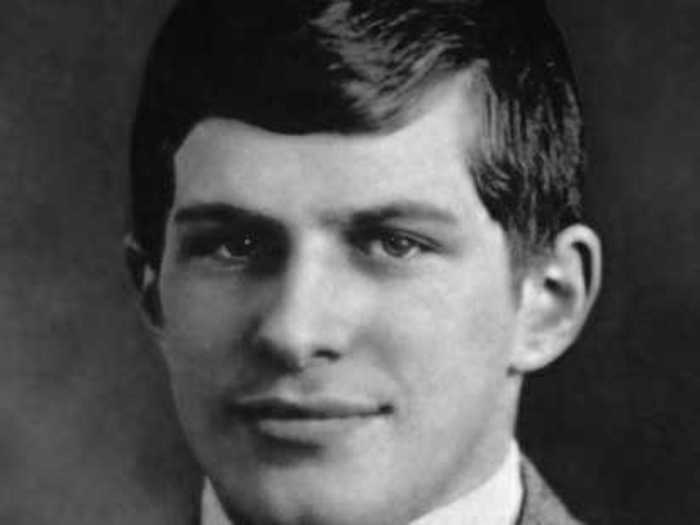
William Sidis (the inspiration for the film "Good Will Hunting") was an American child prodigy whose IQ scores range from 200 to 300 by different measures. By the age of 2, Sidis was reading The New York Times and typing out letters on a typewriter – in both English and French.
He was accepted to Harvard at the age of 9, but the university wouldn't let him attend due to his "emotional immaturity." He attended Tufts instead, until Harvard finally let him in when he turned 11.
Reporters followed him everywhere, and he eventually became a recluse, moving from city to city under different names, to avoid the spotlight. He died at the age of 46 from a massive stroke.
8. Gottfried Leibniz
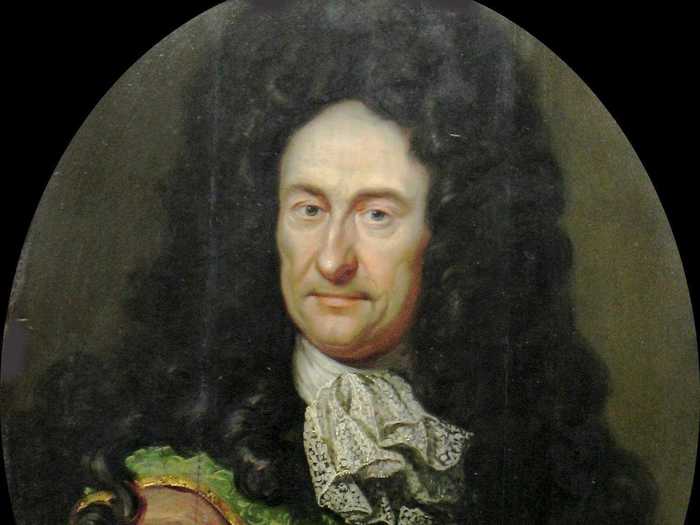
Gottfried Leibniz was a German philosopher and logician who is perhaps best well known for inventing differential and integral calculus. His estimated IQ scores range from 182 to 205 by different measures.
In 1676, Leibniz founded a new formulation of the laws of motion known as dynamics, substituting kinetic energy for the conservation of movement.
His contributed extensively to the philosophy of language with his work on necessary and contingent truths, possible worlds, and the principle of sufficient reason.
7. Nicolaus Copernicus
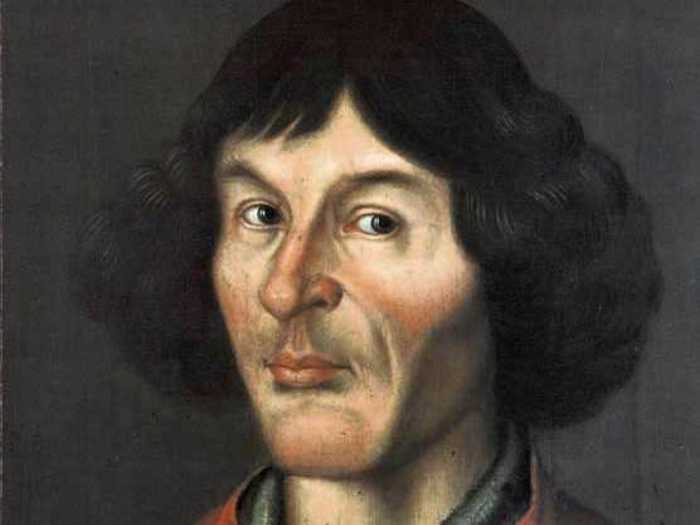
Copernicus was a Polish mathematician and astronomer whose discovery of the heliocentric model of the universe — in which the sun and not the earth is the center of our solar system — revolutionized the study of the cosmos. His estimated IQ scores range from 160 to 200 by different measures.
His book, "De Revolutionibus Orbium Coelestium," was banned by the Church after he died in 1543. The book remained on the list of forbidden reading material for nearly three centuries thereafter.
6. Rudolf Clausius
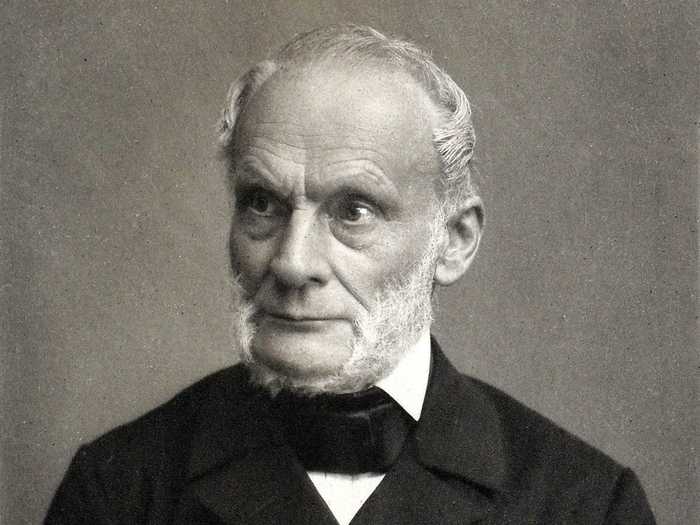
Rudolf Clausius was a German physicist and mathematician best known for formulating the second law of thermodynamics. His estimated IQ scores range from 190 to 205 by different measures.
Clausius made thermodynamics a science, coined the term "entropy," and developed the kinetic theory of gases.
He was also one of the first scientists to suggest that molecules are made up of continually interchanging atoms, which later provided the basis for the theory of electrolytic dissociation (the breakdown of molecules into charged atoms or ions).
5. James Maxwell
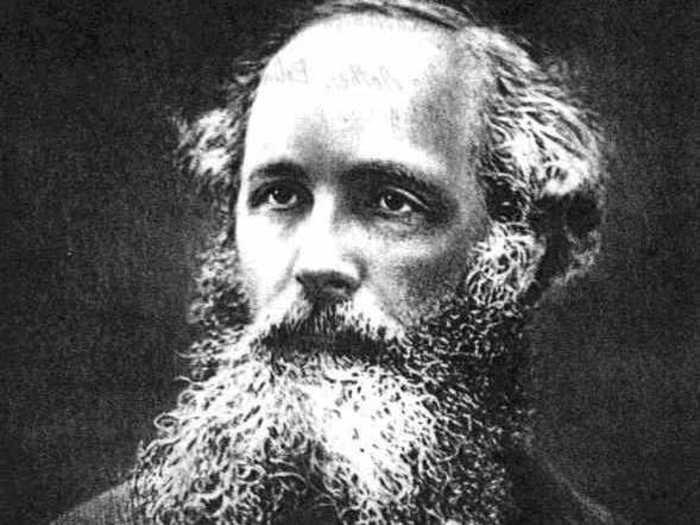
James Maxwell was a Scottish mathematical physicist who is best known for formulating the classical theory of electromagnetic radiation. His estimated IQ scores range from 190 to 205 by different measures.
Maxwell is credited with laying the foundations for quantum theory and was was revered by many, including Einstein. When Einstein was asked if he had stood on the shoulders of Newton, he replied: “No, I stand on Maxwell’s shoulders.”
4. Isaac Newton
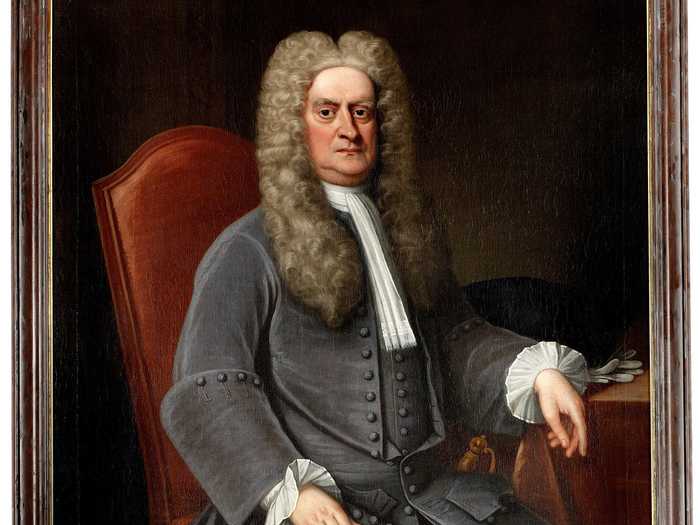
Most famous for his law of gravitation, English physicist and mathematician Sir Isaac Newton was instrumental in the scientific revolution of the 17th century. His estimated IQ scores range from 190 to 200 by different measures.
He wrote "Philosophiae Naturalis Principia Mathematica," widely believed to be the most influential book on physics and possibly all of science. Although some of his assumptions were eventually proven wrong, Newton's universal principles of gravity had no parallels in science at the time.
3. Leonardo da Vinci
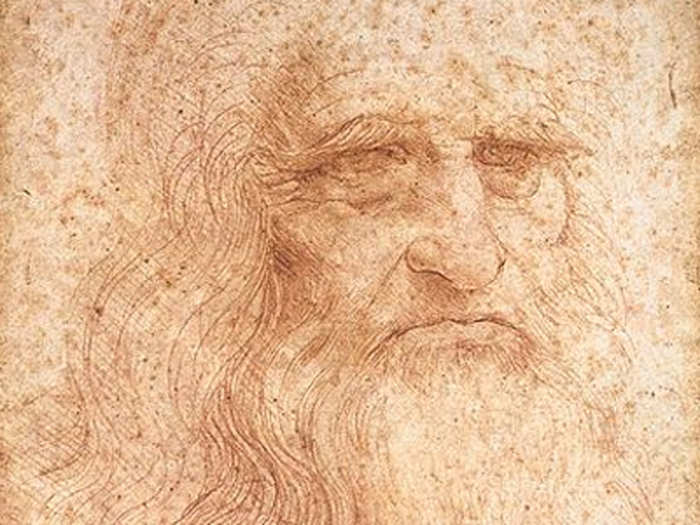
A painter, sculptor, architect, musician, mathematician, engineer, inventor, anatomist, geologist, cartographer, botanist, and writer, Leonardo da Vinci was perhaps the most diversely talented person to have ever lived. His estimated IQ scores range from 180 to 220 by different measures.
He's one of the most celebrated painters in history, revered for his technological innovations such as flying machines, an armoured vehicle, concentrated solar power, and adding machines. Da Vinci was a chronic procrastinator, though, and few of his designs were ever realized during his lifetime.
2. Albert Einstein
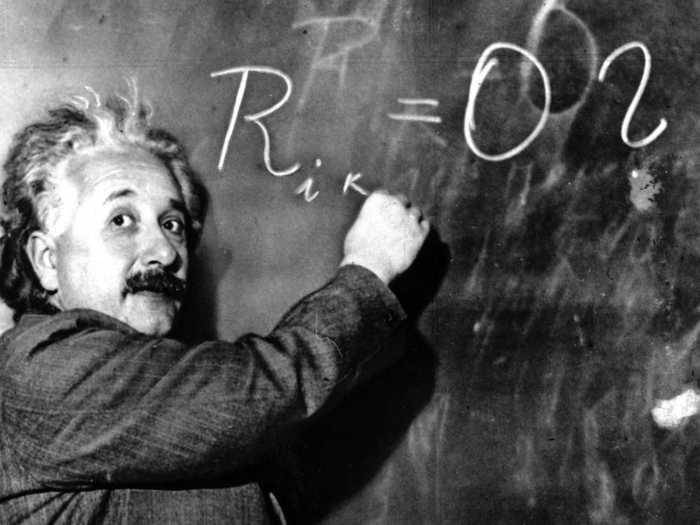
Albert Einstein was a German-born theoretical physicist and philosopher of science whose estimated IQ scores range from 205 to 225 by different measures. He is best known for his mass–energy equivalence formula E = mc2 which has been called the world's most famous equation.
Einstein articulated the principle of relativity and attempted to disprove quantum theory until he died in 1955 at the age of 76.
1. Johann Goethe
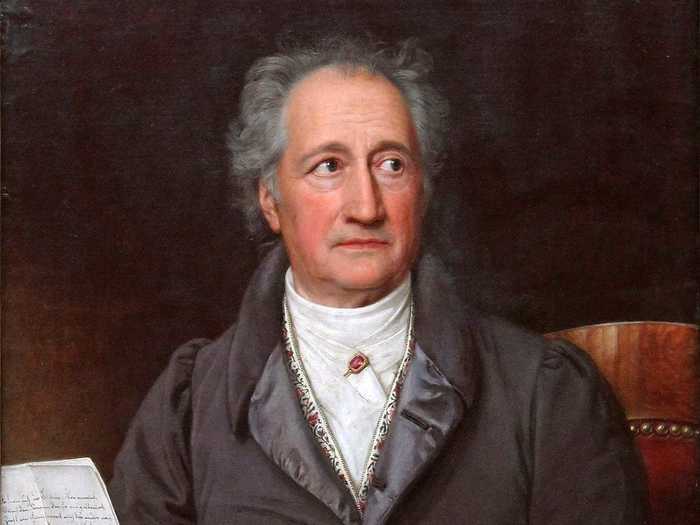
Considered by Einstein to be "the last man in the world to know everything," Goethe was a German polymath who founded the science of human chemistry and developed one of the earliest known theories of evolution. His estimated IQ scores range from 210 to 225 by different measures.
He's considered one of the greatest figures in Western literature: his 1808 poetic drama, "Faust," is still widely read and studied today.
Popular Right Now
Popular Keywords
Advertisement
